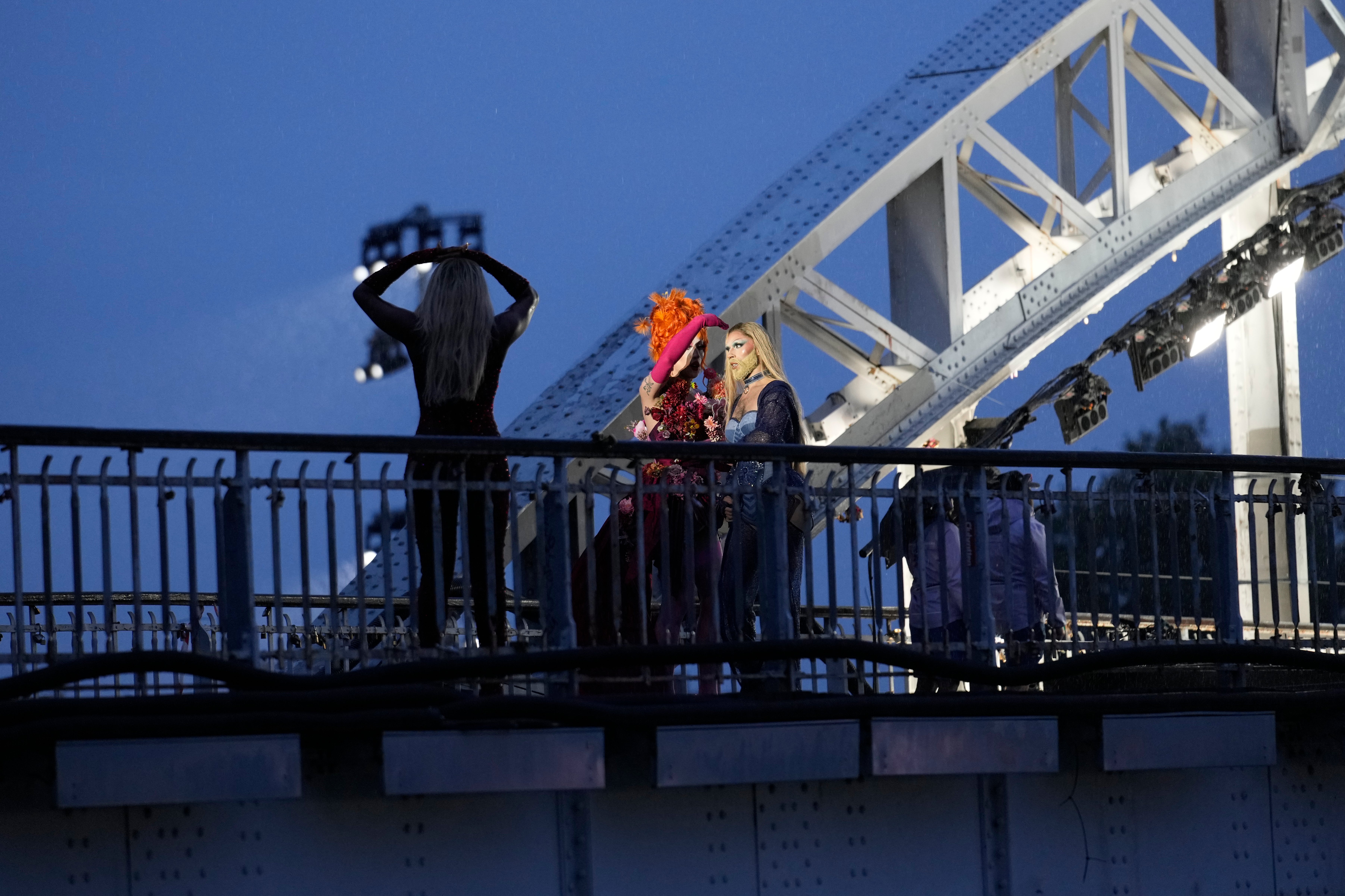A record 191 openly LGBTQ+ athletes are competing in the 2024 Olympics
A record number of athletes openly identifying as LGBTQ+ are competing in the 2024 Paris Olympics

A record number of athletes openly identifying as LGBTQ+ are competing in the 2024 Paris Olympics, a massive leap during a competition that organizers have pushed to center around inclusion and diversity.
There are 191 athletes publicly saying they are gay, lesbian, bisexual, transgender, queer and nonbinary who are participating in the Games, according to Outsports, an organization that compiles a database of openly queer Olympians. The vast majority of the athletes are women.
That number has quashed the previous record of 186 out athletes counted at the COVID-19-delayed Tokyo Olympics held in 2021, and the count is only expected to grow at future Olympics.
“More and more people are coming out,” said Jim Buzinski, co-founder of Outsports. “They realize it’s important to be visible because there’s no other way to get representation.”
The number of people willing to take the spotlight as an LGBTQ+ Olympian has skyrocketed in past decades. Buzinski said that when they started tracking the numbers at the Sydney Olympics in 2000, they counted only around five people.
Organizers of the Paris Olympics have underscored diversity and inclusion as major themes, showcasing drag queens and refugee athletes in Friday's opening ceremony. That has received some blowback from religious conservatives.
“In our Olympic world, we all belong,” Thomas Bach, International Olympic Committee president said in a speech during the opening ceremony.
Because of that and Paris' reputation as the “City of Love,” Buzinski and LGBTQ+ advocates see the Paris Games as an opportunity for athletes who hail from parts of the world where competitors can't be openly gay because of harsh restrictions on queer populations.
“Coming to Paris, coming to France, they are able to be their true selves," said Jérémy Goupille, co-chair of the Pride House at the Paris Olympics.
The Pride House, which debuted at the 2010 Olympics, is located on a boat floating on the Seine River and will feature live music and speeches from Olympic organizers as it opens Monday night.
Goupille said security concerns still remain for many athletes. Dating apps like Grindr, Bumble and Tinder have long been used as a shield for gay athletes who want to connect with other queer people in the countries where they are competing but don't want to feel publicly exposed.
But he said in previous Games, some have tried to expose athletes that are not officially out by checking heights, weights and locations of people on those apps.
Because of that, Grindr announced that in Paris they have disabled location-based features within the Olympic village where athletes stay and other official Games areas, saying it would allow LGBTQ+ athletes to connect “authentically without worrying about prying eyes or unwanted attention.”
The app made the same decision for the 2022 Beijing Olympics.
“If an athlete is not out or comes from a country where being LGBTQ+ is dangerous or illegal, using Grindr can put them at risk of being outed by curious individuals who may try to identify and expose them on the app," Grindr said in a statement.
Disabling those features was met with some criticism on social media last week after some users reported problems accessing the app in the Olympic village.
“You have to protect them because so many bad people exist. At the same time, there are so many beautiful athletes," Goupille said. "They want to meet someone and it's difficult.”
Bookmark popover
Removed from bookmarks